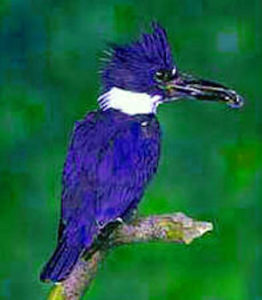Bittu Sahgal, renowned environmentalist, pays homage to the white-breasted kingfisher.
At eight the other morning, over the professional, jaunty sound of the news, I heard what must be one of the natural world’s most accomplished broadcasters – a whitebreasted kingfisher, better known to ornithologists as Halcyon smyrnensis. Jubilant and persistent, the brown, white and turquoise bird, sporting an extravagant orange beak, had found an ideal perch on a wild ber tree overlooking Napean Sea Road. From this towering position it proclaimed its faith to one and all. An old friend, the bird visited our garden often, its ki-ki-ki-ki-ki call easily penetrating glass, cement and concrete… out-performing car horns, motorcycles, buses and all the buzz and clatter which comprises urban noise pollution. Years of habit led me to our balcony almost before the first of its series of calls ended. Here I revelled in the exuberance of a bird that knew it was more vital, more clued in to the earth, than all of India’s politicians’ or other would be kings.
 I have always wondered what it is that the kingfisher broadcasts so eloquently? Just once in my life I would like to get into its mind, to comprehend its message. Not, of course, that it would make a whit of difference to the bird! Its just that the kingfisher seems so sure of itself… so in control. So unlike my own life, which is constantly buffeted by the tugs and pressures of commerce (which insinuate themselves into my purpose forcefully), politics (which I have begun to loathe) and time deficiency (though I seem to waste half my life doing things I don’t want to).
I have always wondered what it is that the kingfisher broadcasts so eloquently? Just once in my life I would like to get into its mind, to comprehend its message. Not, of course, that it would make a whit of difference to the bird! Its just that the kingfisher seems so sure of itself… so in control. So unlike my own life, which is constantly buffeted by the tugs and pressures of commerce (which insinuate themselves into my purpose forcefully), politics (which I have begun to loathe) and time deficiency (though I seem to waste half my life doing things I don’t want to).
There was a time not so long ago, when people suggested that birds sing early in the morning to offer `thanks’ to the sun, for the warmth and life it offered! Scientists now suggest that bird song is actually an expression of territoriality. When the sun comes up, insects are most active. This in turn causes birds to launch hunting sorties for food. Songs serve to warn individuals of the same species to stay away from already occupied areas. Bird song is quite intricate and follows definite patterns. In London a few years ago, scientists at the British Trust for Ornithology actually discovered similarities between the compositions of the skylark and those written by Beethoven! Essentially, however, songs serve to defend hunting and nesting sites, and even mates, from the attention of competitors.
Competitors? Who are the whitebreasted kingfisher’s competitors? Long, long ago, in a land far, far away it was basically kingfishers that competed with kingfishers. Today all that has changed. Little does my whitebreasted friend know, for instance, that there are plans afoot to dump millions of kgs. of lethal pesticides in many of the urban haunts that kingfishers use. Nor is it aware that several of its micro-niches are likely to be taken over by builders and MLAs who are cadaverising invaluable wetlands of Vasai, Virar and Thane. Such destroyers are deaf to reason and bird song.
At close of day around eight at night, between the sound of CNN, BBC, Star News and Doordarshan, comes the gentle cry of yet more avian broadcasters. A pair of barn owls have set up home in a tiny crevasse in the rock wall behind our building. In the dead of night their screeching sounds replace those of the daytime-kingfisher. Both birds continue to claim territories that an infinitely stronger, more foolish species, Homo sapiens, has taken over.
Judging by the smoggy air, dirty water, savaged coastlines and pillaged open spaces that are now Mumbai’s lot, it seems clear that even my kingfisher and barn owl were to perch on heads of those in charge of our troubled city and broadcast their version of world news. They would probably be unable to communicate the spirit of their ancient songs of wisdom.
Courtesy: Sanctuary Asia

Leave a Reply